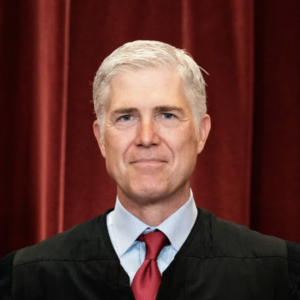The U.S. Supreme Court’s decision in Niz-Chavez v. Garland is a compelling one on several levels and a real head-scratcher when it comes to the 6-3 majority in the case. Framing this case is easy: For far too long, multiple federal governments have played a little fast and loose with notice requirements.
The specifics of the case involve the plaintiff, Agusto Niz-Chavez, who was born in and a citizen of Guatemala. Niz-Chavez came to the United States illegally in 2005. A full eight years later, he was served with a notice to appear in deportation proceedings.
This is where the details become very important. The government’s notice to appear did not include the time and place of a hearing. A second notice later indicated the hearing would take place on June 25, 2013. Niz-Chavez applied for withholding of removal under the Immigration and Nationality Act and relief under the United Nations Convention Against Torture.
From there, it became the same cycle of losses so many immigrants to the United States find themselves experiencing once the legal system becomes involved in their lives. An immigration judge denied his motion. The U.S. Board of Immigration Appeals affirmed the immigration judge’s decision, and the U.S. Court of Appeals for the 6th Circuit denied a petition for review.
The fundamental question in this case – and one that is deeply important to people in Mr. Niz-Chavez’s situation – is whether the government must serve a specific document that includes all the information identified in section 1229(a), or whether the government can serve that information over the course of as many documents and as much time as it chooses.
The Supreme Court’s decision, which came down during the last week of April, reversed the U.S. Court of Appeals in a 6-3 opinion. Writing for the majority, the Gorsuch opinion of the court held that a notice to appear sufficient to trigger the “stop-time rule” must be one single document containing all of the information about an individual’s removal hearing specified in §1229(a)(1).
This stop-time rule was enacted by Congress as part of the Illegal Immigration Reform and Immigrant Responsibility Act (IIRIRA). As it relates to someone such as Mr. Niz-Chavez, it stops a non-citizen’s accrual of time in the United States once the government serves them with the notice to appear pursuant to §1229(a).
As petitioner’s counsel, David Zimmer, partner at Goodwin, stated in the oral argument back in October,
“In IIRIRA, Congress created a new form of notice, a notice to appear. Congress largely copied the pre-IIRIRA notice provisions, but, crucially for this case, Congress cut the language authorizing the government to provide time and place information in a separate hearing notice and made that information a required part of a notice to appear.”
Michael Noriega, a partner at the New Jersey law firm, Bramnick, Rodriguez, Grabas, Arnold & Mangan, LLC, sees the Court’s decision in Niz-Chavez as long-overdue.
“This past week, the Supreme Court handed down Niz-Chavez v. Garland, reinforcing the principle that proper notice is at the foundation of any decision to deport someone from the United States. The government’s choice to hurriedly issue Notices to Appear without dates or times were deemed acceptable by the Immigration Court, despite the deficiencies.”
Noriega also asserts that: “The Supreme Court has now recognized that the government’s rush to charge should not outweigh the non-citizen’s right to fair notice. This decision will impact thousands of future and past cases as both parties attempt to rectify the past several years’ worth of defective notices while opening avenues of relief for thousands of non-citizen families.”
A very interesting aside in this case is that it is yet another example of this court showing its unique and unpredictable (probably an understatement) nature. A group of strange bedfellows aligned with Justice Gorsuch here: the court’s three liberals – Justices Stephen Breyer, Sonia Sotomayor, and Elena Kagan – as well as two other conservatives – Justices Clarence Thomas and Amy Coney Barrett. Justice Brett Kavanaugh wrote a dissent, which was joined by Chief Justice John Roberts and Justice Samuel Alito.

